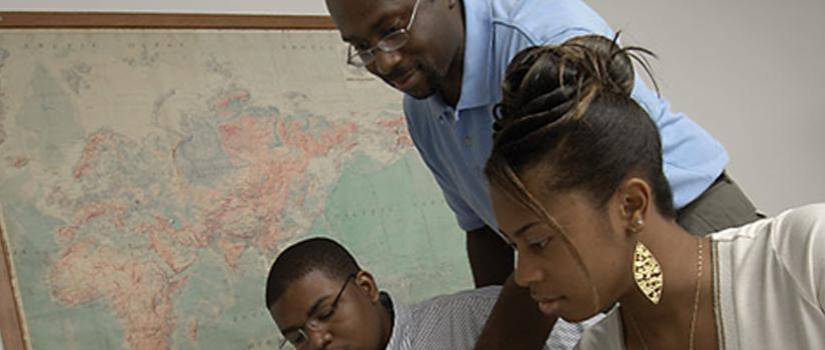Professor Todd Shaw has taught African-American studies and political science within the College of Arts & Sciences since 2003. He is a sought-after scholar who can quickly outline potential legislative pathways or explain the roles of race and ethnicity in hot-button issues. But politics has not always been his pulpit.
“First I thought I wanted to be an African-American preacher,” he laughs. “Then I learned what I really wanted to preach about was the African-American experience.”
That experience is pivotal to the history and future of not just South Carolina, but also the United States of America. When the country elected — and then re-elected — the nation’s first African-American president — many wondered if race even mattered anymore. Little did anyone know racial equality would be shaken to the very core in places such as Ferguson, Missouri, and South Carolina’s own Holy City: Charleston. “We are finding out that race still does matter. Very much,” says Shaw.
Shaw and two other co-editors are currently researching the effect the Obama presidency will have on politics and, in particular, the impact on African-American politics and communities. “We believe his presidency will give African-American communities a grounded expectation about both the great promise and the limitations of the office of President,” he says.
One area of everyday life that is shedding light on the research is learning how modern neighborhoods differ from perceptions. He and his research partners, with the support of undergraduate researchers, are probing the attachment between hyper-mobile Americans and the places in which they live. It is a pilot study of historic African American neighborhoods in Atlanta that has been funded by the National Science Foundation. “We invest a lot of time outside our neighborhoods,” he says. “We are trying to understand what all that time away means to neighborhoods and also what it means to politics many of which are very rooted in place.”
One positive the researchers are already seeing is that Americans who have a broader sense of neighborhood also carry a broader feeling of political efficacy. “If you think you have a larger neighborhood, the broader your sense of connection is to others,” he says.
Professor Shaw, whose courses range from Race in Public Policy to African-American Politics, has offered an unconventional course topic to students from time to time: a Race in Science Fiction class. A self-proclaimed sci-fi fanatic, Shaw has turned his love of futurism into a riveting exploration of contemporary society.
“The class shows students that the genre often addresses broader societal questions,” he says. “It is not really about robots, talking monkeys, or aliens. It is really about us. The alien ‘other’ is the person we have alienated in society.”
